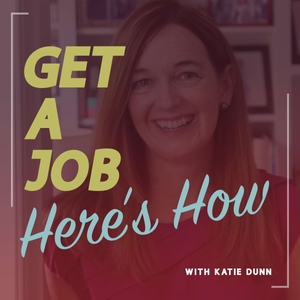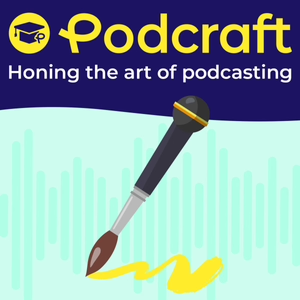
Pause Before You Discipline: NLRB Turns Against Civility in Lion Elastomers Decision, Part II
06/27/23 • 11 min
In this episode, the second of two, host Tom Godar and guest Rufino Gaytán continue to discuss the impact of the National Labor Relations Board’s Lion Elastomers decision, allowing problematic behavior to be wrapped in the cloak of protected behavior. Rufino offers insight on the application of this decision to non-unionized employers and steps to be taken to decrease the chances that a claim for protected behavior would be successful before the NLRB. We also explore the difficult balance between the risk of a claim and the need for an employer to protect its culture and values by disciplining employees who may be acting outside of the employer’s standards.
The discussion highlights that having a consistent application of employer policies, providing discipline in the context of uncivil behavior even when not remotely connected to protected concerted activity may help establish a guideline for analysis of an alleged unfair labor practice. While the NLRB will not make its decision based on the subjective intent of the employer, the lack of consistency in application of a policy will surely facto into any conclusion that discipline in a potentially protected area is unlawful.
When witnessing such behavior, Rufino makes it clear that it is very fact specific and that one activity of a profane objection on behalf of many in the workforce may be protected, but when it turns into threatening behavior, it may lose its protection altogether. Nevertheless, the employer may work to defuse such heated exchanges through suspension and later review, seeking the core basis for the outburst rather than discharging an employee in the heat of the moment.
Most importantly, Rufino suggests that the employer must carefully adhere to its core values that would not allow certain behavior to go unchecked when balancing this against the risk that an NLRB review might find that same behavior to be protected and concerted activity. At that point, it may be wise to consult counsel on the latest reading of this changing area of law and how it affects employers’ desire to keep the workplace civil and safe.
In this episode, the second of two, host Tom Godar and guest Rufino Gaytán continue to discuss the impact of the National Labor Relations Board’s Lion Elastomers decision, allowing problematic behavior to be wrapped in the cloak of protected behavior. Rufino offers insight on the application of this decision to non-unionized employers and steps to be taken to decrease the chances that a claim for protected behavior would be successful before the NLRB. We also explore the difficult balance between the risk of a claim and the need for an employer to protect its culture and values by disciplining employees who may be acting outside of the employer’s standards.
The discussion highlights that having a consistent application of employer policies, providing discipline in the context of uncivil behavior even when not remotely connected to protected concerted activity may help establish a guideline for analysis of an alleged unfair labor practice. While the NLRB will not make its decision based on the subjective intent of the employer, the lack of consistency in application of a policy will surely facto into any conclusion that discipline in a potentially protected area is unlawful.
When witnessing such behavior, Rufino makes it clear that it is very fact specific and that one activity of a profane objection on behalf of many in the workforce may be protected, but when it turns into threatening behavior, it may lose its protection altogether. Nevertheless, the employer may work to defuse such heated exchanges through suspension and later review, seeking the core basis for the outburst rather than discharging an employee in the heat of the moment.
Most importantly, Rufino suggests that the employer must carefully adhere to its core values that would not allow certain behavior to go unchecked when balancing this against the risk that an NLRB review might find that same behavior to be protected and concerted activity. At that point, it may be wise to consult counsel on the latest reading of this changing area of law and how it affects employers’ desire to keep the workplace civil and safe.
Previous Episode

Pause Before You Discipline: NLRB Turns Against Civility in Lion Elastomers Decision
Host Tom Godar and his guest Rufino Gaytán tackle the newly expanded protections offered employees under the National Labor Relations Board’s Lion Elastomers decision, published May 1, 2023. As part of the ping-pong effect of a Biden-appointed Board following a Trump-appointed Board following an Obama-appointed Board, employee protections for violations of employer’s policies that were previously available have been restored. This allows employee behavior in the context of concerted activities, such as shouting racial epithets, or engaging in coarse and even potentially threatening conduct, to be excused as part of the real world of labor relations as it is seen on picket lines or in other situations of conflict. This overruled the 2020 General Motors decision which held that the Board must look to employer intent and good faith in applying employer policies or standards regarding conduct, even if it was also related to National Labor Relations Act. That decision had attacked the standards set forth in Cooper Tire and other decisions; however, the Lion Elastomers decision makes it much more difficult for employers to balance the responsibility to address behavior in the workplace with the rights of employees to engage in concerted activities challenging the employer, its employees, or policies. Mr. Gaytán acknowledges that while General Counsel Abruzzo suggests that there is no inherent conflict with this position, and enforcement of employee rights to be free from threatening behavior or a hostile workplace, the analytical framework to make decisions which balance these rights is hardly easy to apply.
In episode two of this podcast, Tom and Rufino continue their discussion and look at the potential impact upon those employers who do not have union-represented employees. They also discuss some of the practical implications of balancing the newly articulated rights of employees and the overall responsibility of employers to protect all of the employees in the workplace from improper conduct. Join us soon for part two of the Labor Law Insider.
Next Episode

Recent U.S. Supreme Court, NLRB Decisions Highlight Labor Issues in Higher Education
Host Tom Godar is joined by two special guests, Tyler Paetkau and Jason Montgomery, for a special Higher Education edition of the Labor Law Insider. In this first part of a two-part podcast, the panel takes on two recent and hugely important U.S. Supreme Court decisions, Biden v. Nebraska Loan and Students for Fair Admissions v. Harvard College. The first case deals with student loan forgiveness and the second takes on race-based considerations for college admissions.
Jason offers an analysis of the Court’s majority decisions in Students for Fair Admissions and shares how universities had anticipated this decision. In response, many institutions are changing—or at least, assessing—their current application standards. Tyler suggests that these issues may impact closely allied areas of concern, such as affirmative action and DEI policies, that have race-based components.
There is also a discussion of the Biden administration’s executive overreach in declaring student loans forgiven, which the Court found to be an encroachment upon congressional power. The discussion also considers alternative approaches the administration may attempt to pursue its goal of student loan forgiveness.
Also in Part One of this episode, the panel explores the notion of student-athletes as employees. Tyler discusses the recent decision by the National Labor Relations Board to issue a formal complaint against the NCAA, the Pac-12 Conference, and the University of Southern California in connection with alleged unfair labor practices.
These themes are further developed in Part Two of the podcast, which looks at the increased activism of unions on campus with regards to both strikes as well as organizing. Universities are advised to identify and assess opportunities to understand where union activities may arise on their campuses.
If you like this episode you’ll love
Episode Comments
Generate a badge
Get a badge for your website that links back to this episode
<a href="https://goodpods.com/podcasts/the-labor-law-insider-558446/pause-before-you-discipline-nlrb-turns-against-civility-in-lion-elasto-71207514"> <img src="https://storage.googleapis.com/goodpods-images-bucket/badges/generic-badge-1.svg" alt="listen to pause before you discipline: nlrb turns against civility in lion elastomers decision, part ii on goodpods" style="width: 225px" /> </a>
Copy




